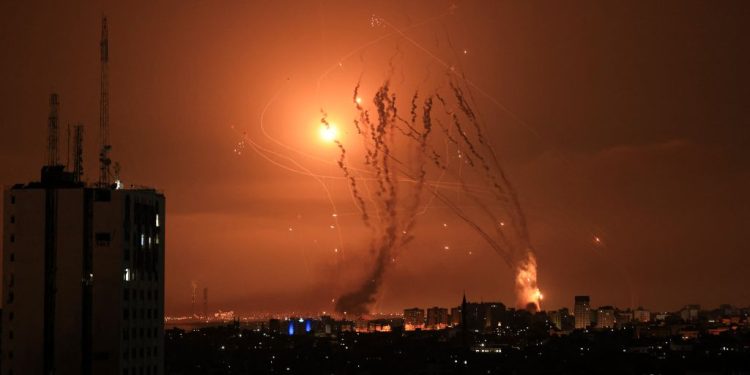The world’s hopes for peace in the Middle East are sometimes a step or two forward, sometimes a step or two backward, or maybe a time of equilibrium — a seething equilibrium, but at least a period of overall external peace.
Wars that break out from time to time change everything.
And that’s what’s happening now in the days-old Israeli-Hamas war.
Since these things don’t happen in a vacuum, when open conflict arises, things change throughout the region.
The war has disrupted relations among the U.S., Saudi Arabia and Israel and undercut the nation-by-nation attempts of the Trump administration’s Abraham Accords to develop peace in the area.
The weekend Hamas attacks on Israel may have been designed to disrupt U.S. efforts to fashion some harmony between the Saudis and the Israelis, U.S. Secretary of State Antony Blinken said, according to The Associated Press.
If so, it appears to be successful. The New York Times reported Sunday that Dennis Ross, who was involved with Middle East policy under several U.S. presidents, said in an interview that a Saudi official had told him that “for the moment, it is all on hold.”
Hammering out the Israel-Saudi link could have been a crowning achievement for President Joe Biden, Israeli Prime Minister Benjamin Netanyahu and Saudi Crown Prince Mohammed bin Salman, according to the AP.
Just last month, Biden and Netanyahu, meeting in New York, basked in the ramifications of such an agreement, with the U.S. president noting that a decade ago it would not have been possible.
But recent events apparently have made the scenario of 10 years ago today’s reality and have undercut the Trump administration’s brokering of a pact in which Morocco, the United Arab Emirates and Bahrain normalized their relationship with Israel.
Any Saudi-Israel pact “is for now off the table,” geopolitical consultant Ian Bremmer of the Eurasia Group said, according to Fortune.
Bremmer described Hamas’ attack on civilians — which left at least 1,000 people dead — as “Israel’s 9/11.” They were “the first attacks deep into Israel,” he said.
The United States, Saudi Arabia and Israel voiced shock at the Hamas attack, but some say there should be no surprise given the ongoing stumbling block of Palestinian demands for statehood.
“We’ve been telling you guys over and over again that if you ignore the Palestine issue the region’s going to explode,” said Yousef Munayyer of the Palestine-Israel Program at Washington’s Arab Center, according to The Washington Post. “And I think there’s just been a tremendous amount of hubris on the part of the Biden administration thinking they could do that.”
Biden officials have privately pushed for concessions to Palestinians, the Post reported, but Netanyahu has clearly stated a Palestinian state is not acceptable.
For its part, Saudi Arabia put out a statement blaming Israeli policies for the attack, according to Fortune.
Attempts by the U.S. to develop some kind of peace between Israel and its neighbors have a long history dating back to President Jimmy Carter’s work with Egypt in the late 1970s.
King Abdullah II of Jordan – whose country reached an agreement with Israel about three decades ago – has said a pact between Israel and Saudi Arabia gave no promise of stability.
“This belief, by some in the region, that you can parachute over Palestine, deal with the Arabs and work your way back — that does not work,” Abdullah said last month, according to the Post.
“And even those countries that have Abraham Accords with Israel have difficulty moving publicly on those issues when Israelis and Palestinians are dying,” the king said. “So unless we solve this problem, there will never be a true peace.”
It’s hard to measure it – in steps backward or in time, as in moving to the past. Whatever the metric, there is war in the Middle East and that affects all nations in the region and perhaps all of the world.
And Psalm 122:6 comes to mind – “Pray for the peace of Jerusalem.”
This article appeared originally on The Western Journal.


























 Continue with Google
Continue with Google